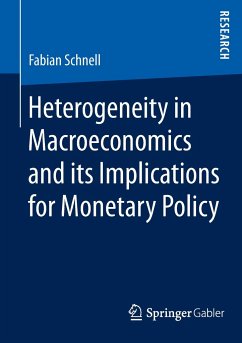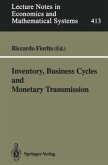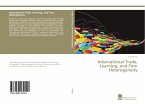Fabian Schnell develops a model indicating that by keeping real interest rates too low, monetary policy can distort the allocation of resources across firms and potentially delay economic recovery after a recession. This is a new channel of monetary policy that is especially relevant in view of "Quantitative Easing" programs. A second model focuses on the short-term implications of heterogeneously productive firms, showing an acceleration effect of technology shocks. Finally, an empirical investigation of firms' price-setting behaviors shows that time-dependent factors, relative to state-dependent ones, play a small role with respect to the probability and the size of a price change. All results provide new insights for monetary policy.
Bitte wählen Sie Ihr Anliegen aus.
Rechnungen
Retourenschein anfordern
Bestellstatus
Storno








